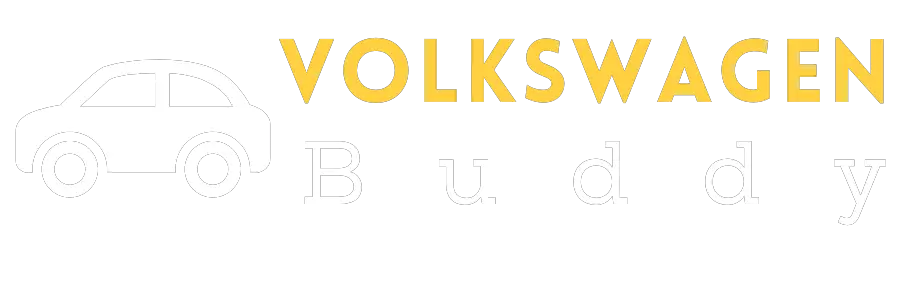Volkswagen Jetta Check Engine Light Codes [Explained]
Are you puzzled by the enigmatic glow of your Volkswagen Jetta’s check engine light As a skilled Volkswagen technician
I understand the frustration and uncertainty that can accompany this situation. The check engine light serves as a signal that the vehicle’s onboard diagnostics system has detected a potential issue. Understanding the meaning behind these codes is crucial for diagnosing and resolving any underlying problems. In this guide
I will unravel the mysteries of
providing you with the knowledge to decode and address these signals effectively.
So Volkswagen Jetta Check Engine Light Codes
Volkswagen Jetta Check Engine Light Codes
The check engine light on a Volkswagen Jetta can be caused by a variety of problems. Here are some of the most common:
P0300:
Random misfire
P0301:
Cylinder 1 misfire
P0302:
Cylinder 2 misfire
P0303:
Cylinder 3 misfire
P0304:
Cylinder 4 misfire
P0420:
Catalytic converter efficiency below threshold
P0430:
Secondary air injection system malfunction
P0442:
Evaporative emission control system leak
P0455:
Fuel vapor leak detected
If you see the check engine light on your Volkswagen Jetta, it’s important to have it diagnosed and repaired as soon as possible. Ignoring the check engine light can lead to more serious problems down the road.
Volkswagen Jetta Check Engine Light Codes
Understanding the Check Engine Light
When the check engine light illuminates on your Volkswagen Jetta
it’s an indication that the vehicle’s onboard diagnostics (OBD-II) system has detected a potential issue. This system monitors various components of the vehicle and can store specific trouble codes to help identify the problem.
Common Causes of Check Engine Light
Several factors can trigger the check engine light in a Volkswagen Jetta
including a loose or damaged gas cap
a low or expired car battery
faulty spark plugs
failing oxygen (O2) sensors
and issues with the fuel and air systems.
Retrieving Diagnostic Trouble Codes
When the check engine light comes on
it’s crucial to retrieve the diagnostic trouble codes (DTCs) stored in the engine’s computer. This can be done using diagnostic tools such as the VAG 1551
VAG 1552
or the VAS diagnostic computer. These codes provide valuable insights into the specific issues affecting the vehicle.
Interpreting the Codes
Once the diagnostic trouble codes have been retrieved
it’s essential to interpret them accurately. Each code corresponds to a particular problem or malfunction within the vehicle’s systems. Understanding these codes is vital for diagnosing and resolving the underlying issues.
Addressing the Issues
Upon identifying the specific check engine light codes
it’s important to address the underlying issues promptly. This may involve inspecting and repairing components such as the gas cap
battery
spark plugs
O2 sensors
or other relevant systems based on the diagnostic trouble codes retrieved.
Seeking Professional Assistance
While some check engine light issues may be resolved through simple maintenance procedures
others may require the expertise of trained automotive technicians. Seeking professional assistance from authorized Volkswagen service centers can ensure accurate diagnosis and effective resolution of the problems indicated by the check engine light codes.
Conclusion
The check engine light codes in a Volkswagen Jetta serve as valuable indicators of potential issues within the vehicle’s systems. Understanding these codes and taking appropriate measures to address the underlying problems is essential for maintaining the performance and reliability of the vehicle.
Also Read: Volkswagen Jetta Engine Codes
FAQs about Volkswagen Jetta Check Engine Light Codes
What does the check engine light mean on my Volkswagen Jetta?
The check engine light is a warning light that indicates that there is a problem with your vehicle’s engine. The light may be accompanied by a number of other symptoms, such as a loss of power, a rough idle, or a burning smell. If you see the check engine light, it is important to have your vehicle diagnosed by a qualified mechanic as soon as possible.
What are the most common causes of the check engine light on a Volkswagen Jetta?
There are many different causes of the check engine light on a Volkswagen Jetta. Some of the most common causes include:
A faulty oxygen sensor
A misfiring spark plug
A dirty or clogged fuel filter
A problem with the fuel injection system
A problem with the exhaust system
What should I do if the check engine light comes on on my Volkswagen Jetta?
If the check engine light comes on on your Volkswagen Jetta, it is important to have your vehicle diagnosed by a qualified mechanic as soon as possible. The mechanic will be able to determine the cause of the light and recommend the best course of action.
How much does it cost to fix the check engine light on a Volkswagen Jetta?
The cost of fixing the check engine light on a Volkswagen Jetta will vary depending on the cause of the light. Some common repairs, such as replacing a faulty oxygen sensor or a dirty fuel filter, can cost around $100 to $200. However, more serious repairs, such as replacing a misfiring spark plug or repairing a problem with the fuel injection system, can cost several hundred dollars or more.
Can I drive my Volkswagen Jetta with the check engine light on?
It is not recommended to drive your Volkswagen Jetta with the check engine light on. The light is a warning that there is a problem with your vehicle’s engine, and it could potentially lead to further damage if you continue to drive. If the check engine light comes on, it is best to have your vehicle diagnosed and repaired as soon as possible.



![2006 Volkswagen Jetta Jerks When Taking Off [Fix It Now!]](https://volkswagenbuddy.com/wp-content/uploads/2024/05/2006-volkswagen-jetta-jerks-when-taking-off-fix-it-now_4510-768x531.jpg)

![Volkswagen Golf Speedometer Not Working [Reasons & Fixes]](https://volkswagenbuddy.com/wp-content/uploads/2024/05/volkswagen-golf-speedometer-not-working-reasons-fixes_3895-768x531.jpg)
